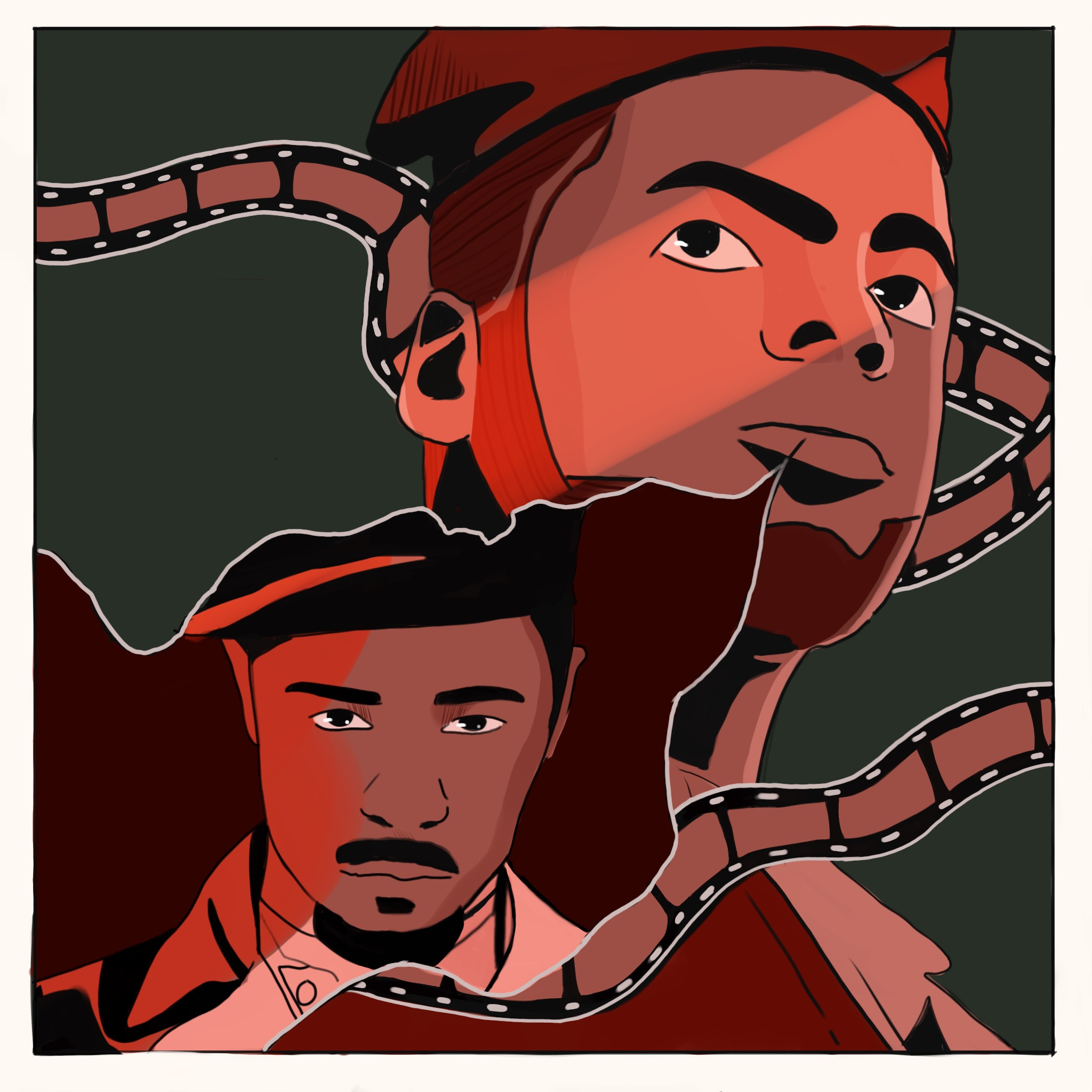Judas and the Black Messiah, directed by Shaka King, tells the story of Black liberation activist Fred Hampton, and the undercover informant who ultimately aided in his murder. It comes as no surprise that a movie about the conflict between the Black Panther Party and the US government has a lot of relevance to our society today. The film sheds light on the FBI’s targeting of Hampton, chairman of the Illinois chapter of the Black Panther Party. The brilliant writing, production, and performances highlight both the changes in our country since 1969, as well as its failures to evolve.
Judas and the Black Messiah centers around Hampton, the messiah of the title, played by Daniel Kaluuya, and William O’Neal, “Judas,” an FBI informant played by LaKeith Stanfield. Both portray their roles intimately and expressively, giving form to detailed characters that in a film constructed by other writers could have been formed only in broad strokes. Their beautiful portrayals increase the difficulty of identifying which of these characters is the main focus of the film. The story alternates between the two’s personal conflicts: Hampton’s difficulty in upholding both his public and personal duties, and O’Neal’s brewing internal conflict as he grows to distrust his FBI contact, played by Jesse Plemons.
The tensions and tenderness are grounded in the phenomenal scripting of relationships, trust, and fear. There’s minimal use of exposition, creating certain minor gaps in the story that are left to be filled in by one’s imagination. This adds to, rather than detracts from, the story, as it allows the film to focus on crucial events and character interactions.
With this additional space to breathe, we can see Hampton’s love unfolding for activist Deborah Johnson, known today as Akua Njeri, and played by Dominique Fishback, as he garners the support of and builds alliances with other groups sharing similar aims to those of the Black Panther Party. Throughout the film, we can see O’Neal being slowly torn apart as his allegiance to the Panthers grows while the community devolves into chaos.
Viewing the crux of this film, the murder of Fred Hampton in a nighttime police raid of his apartment, one clearly sees its reverberations today: in the killings of George Floyd, Breonna Taylor, and so many others, in the targeting of Black people by the police, and in the systemic oppression of movements for the rights and lives of Black people.
Additionally, we can see yet again how it has invariably led to tragedy when there are singular persons leading the charge for Black rights. Perhaps this is why we see fewer of these figures leading modern challenges to systematic racism and oppression. The role of the “Judas” in this film highlights the betrayal and the tragedy that can come from political disenfranchisement.
While not easy to watch, as all stories based on, and coming from, the harsh reality of our society are, Judas and the Black Messiah is an important film, especially in the current political climate.





